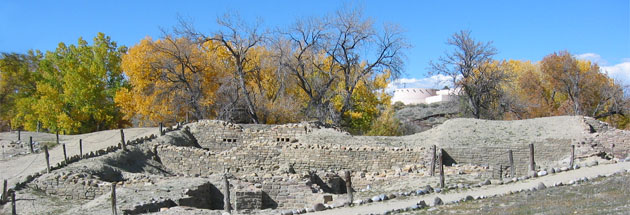From 2001 to 2014, Archaeology Southwest’s Preservation Archaeologist Paul Reed was based at Salmon Pueblo. His long-term collaborative research project examines the reach of the cultures centered at Chaco Canyon and Mesa Verde into the Middle San Juan Basin. It also seeks to understand what communities in the region looked like after the influence of each of those cultures waned.
Salmon Pueblo was constructed as a Chacoan outlier—a settlement or enclave of people from Chaco Canyon—around A.D. 1090. At that time, the pueblo had 275 to 325 original rooms spread across three stories, an elevated tower kiva in its central portion, and a great kiva in its plaza. Subsequent use by local Middle San Juan people (beginning in the 1120s) resulted in extensive modifications to the original building: hundreds of rooms were reused, many of the original large rooms were divided into smaller rooms, and more than 20 small kivas were built into pueblo rooms and plaza areas. The site was inhabited by Pueblo people until the 1280s, when much of the site was destroyed by fire and people left.

Salmon Pueblo today
Details
Related to This
-
Location Aztec Ruins National Monument
-
Location Salmon Ruins Museum